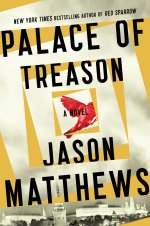That sounds interesting....
Speaking of behemoths, and not for you probably,
@Scepticalscribe -- since I'm sure you've read these-- I noticed the other day that the first two of the Hilary Mantel books on Cromwell:
Wolf Hall, and
Bring up the Bodies, have been tagged as Kindle Unlimited books on Amazon at least in the USA. So then if one is a subscriber to that plan, can read them for free.
Sensibly enough,
Mirror and the Light, the last in the trilogy, one still would have to shell out for or else likely end up on a waiting list for ebooks at the public library... but if anyone hasn't read the earlier ones and subscribes to Kindle Unlimited, the first two are available to borrow into one's Kindle library.
I have them all, fine, fat (and fat, in a book I like, is a term of endearment, a compliment) books.
Wolf Hall is excellent but it does take some time to get into; on a first read, the first fifty pages can be a bit of a struggle, and then, somehow and quite suddenly, abruptly and unexpectedly, it just clicks into place and races along, dragging you with it as you realise that you have become immersed in 16th century England.
Bring Up The Bodies is superb, terse, tight and impeccably written; however, to appreciate it, I really think that you need to have read Wolf Hall first.
And, as for the Mirror and the Light: Again, you appreciate it more if you have read the two earlier books, but, by this work, it is clear that Hilary Mantel is so comfortable with her world, her work, her characters, that some passages are actually laugh out loud funny (well, to me they were).
And, what mastery of her material: By the end of the third book, The Mirror and the Light, firstly, you know the end - it is a matter of recorded historical fact, not a spoiler, and secondly, we know that much of what Thomas Cromwell did - as Henry's enforcer - was pretty unsavoury, and yet, as the tale approaches its inevitable and known conclusion, despite knowing who he was and what he did, (and the story does not seek to deny or to diminish this, but does allow for a fuller and more nuanced understanding of Cromwell himself and his world), we find ourselves rooting for him, and - actually genuinely upset at his inevitable end when the king whose bacon he had saved, coffers he had filled, and whose wives he had disposed of, finally turned on him, discarding him, dispensing with him, and dealing a characteristically unjust death to him.

 www.latimes.com
www.latimes.com




